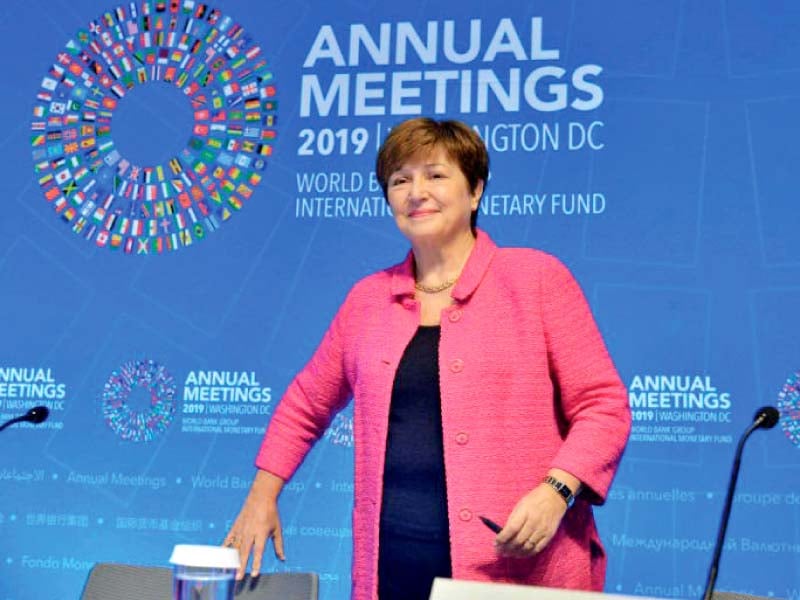
IMF Managing Director Kristalina Georgieva announced the decision at the Fund's and World Bank's annual meetings, saying that the move will provide confidence that the IMF can adequately support members as they deal with slowing global growth.
The move is a recognition that the current review of its quota - or shareholding system - was not going to result in changes that would grant more power to growing emerging markets such as China and Brazil in the face of US opposition.
IMF keeps macroeconomic projections unchanged
US Treasury Secretary Steven Mnuchin said at the IMF's spring meetings in April that the United States opposes increasing overall funding and shareholding quotas. "In our view, the IMF currently has ample resources to achieve its mission," he said at the time.
The IMF's steering committee endorsed the decision, which calls for completion of a package to ensure that the fund maintains its lending resources.
The IMF's $250-billion crisis fund, the new arrangements to borrow created a decade ago, was due to expire in 2022. Bilateral lending arrangements, totaling about $440 billion, were due to expire at the end of 2019.
The move by the IMF will "preserve its role at the centre of the global financial safety net," Lesetja Kganyago, International Monetary and Financial Committee Chairman and Reserve Bank of South Africa Governor, said in a statement.
"The IMFC will continue to work to ensure that the IMF has sufficient resources and that its governance appropriately reflects developments in the global economy and its membership."
IMF members last altered quotas in 2010, agreeing to increase China's and other emerging markets' voting power, but the changes were not implemented until 2016, in part due to approval delays by the US Congress.
Last week, the IMF mulled to postpone its plan of raising its funding quotas, or voting shares, which would have seen China replace Japan as the second-most-influential voice at the body.
Washington, which as the largest shareholder in the global lender wields an effective right of veto, had previously expressed opposition to increasing the IMF's overall funding and shareholder quotas, a move that would have also reshuffled voting rights.
IMF says trade war cuts global growth to lowest since financial crisis a decade ago
The Group of 20 major economies pledged in June, at their financial leaders' meeting in Japan, to conclude the 15th general review of quotas no later than the IMF annual meetings.
The G20 urged the IMF to expedite its work on resources and governance reform as a matter of the highest priority.
Japan has held the second position in terms of funding quotas, and therefore voting rights, since 1992. However, its proportion of funding has slipped to 6.46% from 6.56%. China's contribution has jumped to 6.39% from 4%, rising from sixth to third place.
Published in The Express Tribune, October 19th, 2019.
Like Business on Facebook, follow @TribuneBiz on Twitter to stay informed and join in the conversation.

















COMMENTS
Comments are moderated and generally will be posted if they are on-topic and not abusive.
For more information, please see our Comments FAQ